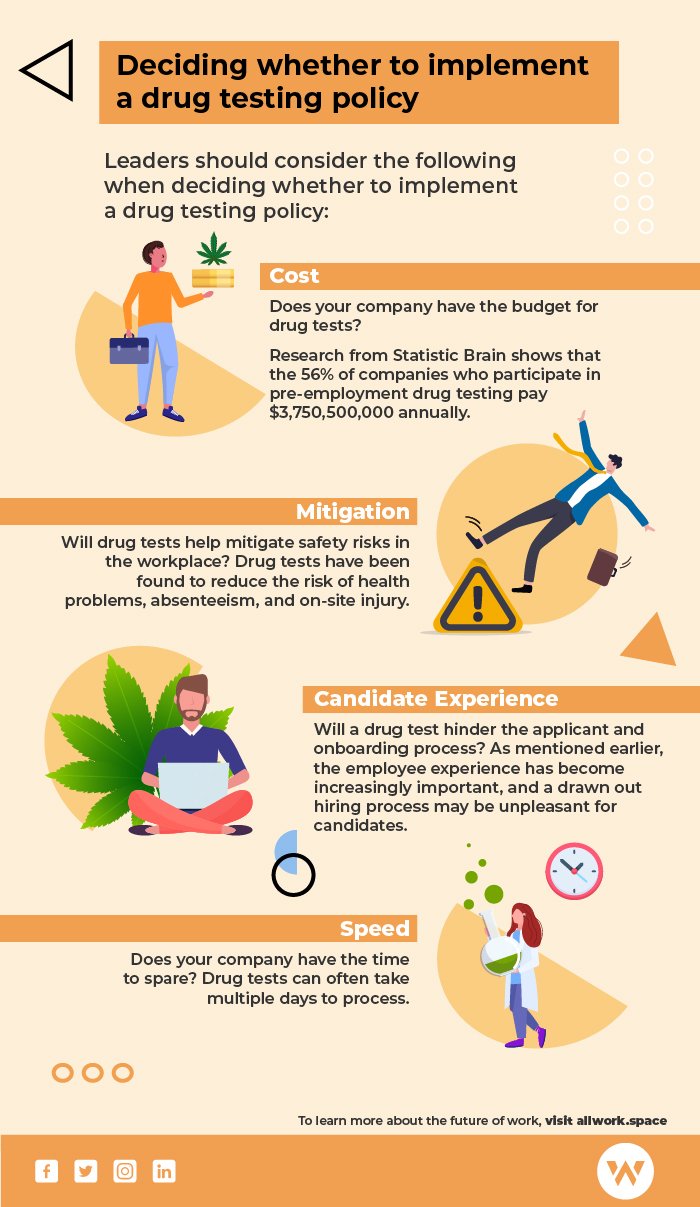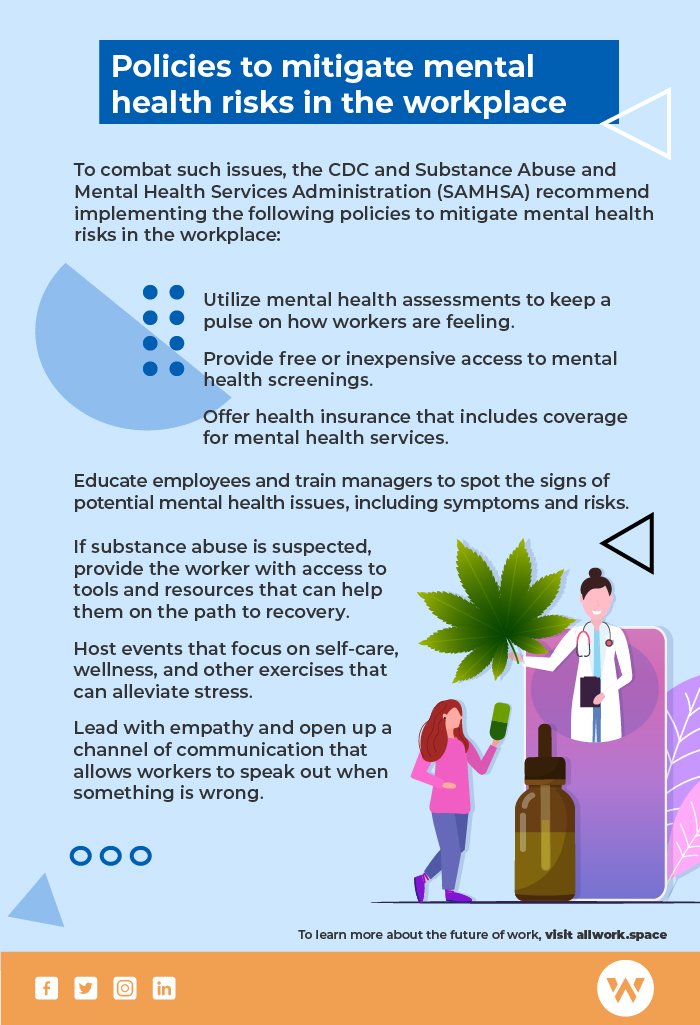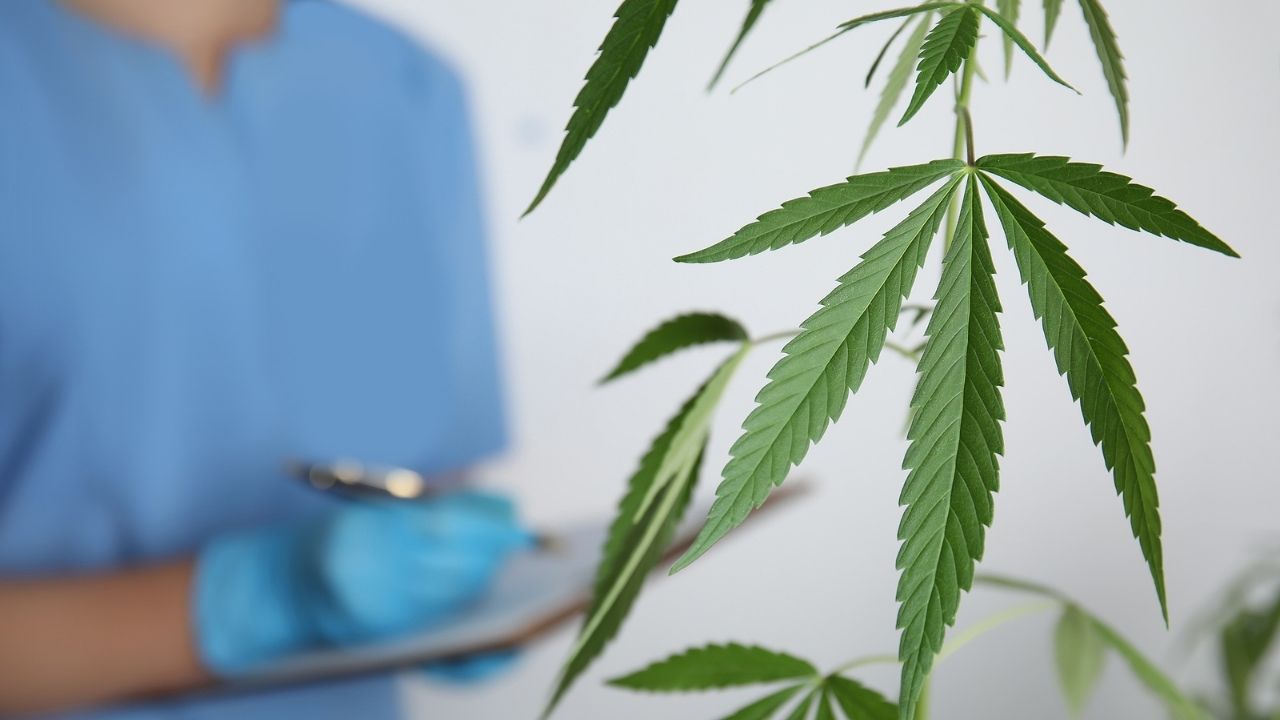- What is substance use?
- How are workplaces addressing changing drug laws?
- What can leaders do to create a safe workplace?
Today’s younger generations have played a huge role in tackling taboo subjects head on.
Whether it’s mental health, substance use and misuse, environmental issues, economic disparities, or what have you, younger generations have become more open to talking about challenging topics.
With this, culture and laws in the U.S. have also shifted to address some of these issues.
And one of the most controversial of these topics?
The legalization of both medical and recreational cannabis use.
Over the past several years, 33 states have legalized cannabis in some shape or manner. Even more recently, Oregon decriminalized small amounts of all hard drugs.
However, cannabis remains illegal on a federal level. But that does not mean sentiment hasn’t changed.
With time, society has strayed far away from the fear of cannabis use portrayed in movies like Reefer Madness.
Instead, attitudes towards this drug have become increasingly tolerant in recent years.
Simultaneously, the way society once viewed addiction is also changing.
What was once met with great force, resistance, and punishment is now perceived as more of a behavioral health issue.
However, many companies still require drug tests for their employees or prospects and condemn drug use, even in states where substances like cannabis are completely legal.
The definition of substance use refers to using drugs or alcohol, including cigarettes, prescriptions drugs, and more.
While clearly a broad term, it is still used to highlight restrictions that companies have in their guidelines.
However, the world is changing and it may be time for employers to do the same.
So can we expect companies to adjust their attitudes in relation to cannabis usage? Should organizations reconsider their own substance policies to address the mental health implications?
Shifting Attitudes In The Workplace

Substance use in certain work environments should always be disciplined. For example, no one would want to board a plane if the pilot is intoxicated.
Similarly, intoxication isn’t tolerated for most blue-collar and office employees at work.
This is in stark contrast to executives and business owners who make high-dollar deals entertaining clients out on the town — or on the golf course — while clearly over the limit.
Whether it’s alcohol or cannabis, using substances while working is irresponsible and can create safety hazards for the user and their colleagues.
But what about outside the office?
There are still certain policies that touch on cannabis use outside of the workplace even in legal states, such as:
- Pre-employment drug testing
- Condemnation of most substance use
- Barring applicants with past non-violent convictions
Even companies that operate in states like California and Colorado, both of which have relatively liberal cannabis laws, can have strict guidelines against cannabis usage outside of the office.
But does substance use equate substance addiction?
There are still misconceptions about substance use vs misuse, even in places with the most laid-back laws and regulations.
Despite employees legally being allowed to use cannabis, their jobs still prohibit them from doing so.
Additionally, people with past drug-related convictions have reported facing challenges trying to get their past charges expunged in states that have legalized cannabis.
Such roadblocks that legal states place in front of these individuals makes it harder for them to get hired.
On one hand, applicants are being told that their past mistakes can forever haunt them when seeking new career paths. On the other hand, although these individuals are trying to better themselves by seeking out work, they are still punished.
Even more, instead of trying to address potential mental health issues that are sometimes tied to substance use, employers find it easier to turn away applicants or fire employees that fail a drug test.
In fact, research from JAMA Psychiatry showed that while 14% of the U.S. population suffers from alcohol abuse, only 8% receive treatment.
So how can workers who are actually struggling win?
Cannabis itself is complex and there is no one correct answer about whether its use indicates mental health problems or addiction.
While such challenges aren’t always the reason for cannabis use, psychologists do note that individuals may use this drug as a way to escape or numb other issues.
But like many changes in the workplace, leaders are still incredibly resistant to changing their policies and tackling drug use as a mental health problem rather than frivolous partying.
The Impact On Businesses

Companies have the right to enforce their own rules and regulations so long as they are not discriminatory.
However, could companies be losing out on new opportunities by setting certain regulations?
Think about it.
One of the biggest trends to have emerged in the past year or so has been the power of choice and freedom for employees.
By prohibiting workers from partaking in substance use outside of the office, leaders may be deemed as controlling.
So how much should leaders be allowed to monitor their employees, especially outside of the office? When is it reasonable to require a drug test for applicants?

Leaders should consider the following when deciding whether to implement a drug testing policy:
- Cost
- Does your company have the budget for drug tests?
- Research from Statistic Brain shows that the 56% of companies who participate in pre-employment drug testing pay $3,750,500,000 annually.
- Mitigation
- Will drug tests help mitigate safety risks in the workplace? Drug tests have been found to reduce the risk of health problems, absenteeism, and on-site injury.
- Candidate Experience
- Will a drug test hinder the applicant and onboarding process? As mentioned earlier, the employee experience has become increasingly important, and a drawn out hiring process may be unpleasant for candidates.
- Speed
- Does your company have the time to spare? Drug tests can often take multiple days to process.
Additionally, your company should consider whether this process will discourage top candidates from applying to your company altogether.
Perhaps your company is better off adjusting their policies around substance use.
Of course, it depends.
Does implementing this type of policy scare away qualified applicants, especially younger candidates? Maybe.
However, the concern that may emerge from looser hiring protocols is how to appropriately conduct background checks.
It starts with having an open mind and leading with empathy.
Often, any sort of conviction that comes to light during background checks usually leads companies to throw out applications, regardless of the applicants’ previous experience.
For states that have legalized cannabis or other substances, someone that is unable to have their previous nonviolent conviction expunged could end up being your best salesman.
Even outside of legal states, employers should consider how they view past convictions in relation to mental health. By offering an empathetic approach, candidates can see that your company understands this is not a black-and-white issue.
Potential Labor Shortages

Another element you should consider are the political implications that come with a draconian drug testing policy.
Although politics is not always a determining factor in where a person chooses to work or apply for work, continuing forward with drug testing may turn off potentially great employees.
This is particularly important as we are officially in an era where corporate social justice is incredibly important to younger professionals.
In fact, the 2020 Porter Novelli Executive Purpose Study revealed that 83% of executives feel that businesses play a huge part in driving change for social issues.
Ignoring this shift in culture can impact how much talent is attracted to your company, and potentially lead to labor shortages.
For instance, if a potential candidate sees that your company will not fill a position due to a drug testing result, they may be discouraged from applying altogether.
While there are many preconceived notions about what a failed drug test could mean about a person, companies who turn their back on these applicants risk losing out on:
- Top talent both young and qualified
- Improved reputation
- Creating a safe workplace culture
While it may be hard to determine whether drug testing is hindering your hiring efforts, leaders benefit from always questioning their processes and seeking the best method of operating.
How To Keep The Workplace Safe

The argument that drug testing does not keep the workplace safe is arguable.
It absolutely can play a pivotal role depending on the industry and job position itself.
However!
There are far more serious and frequent hazards beyond substance use that are easily preventable if leaders accommodate the needs of their employees.
Challenges that can actually impact employees in the workplace include:
- Work-related stress
- Depression and anxiety
- Poor sleeping habits
- Burnout caused by working long hours
- Lack of social support
- Economic insecurity
As of February 2021, four in ten U.S. adults have reported symptoms of anxiety or depressive disorder as a result of the pandemic, an increase from the one in ten reported during January to June of 2019.
This finding from the Kaiser Family Foundation highlights the fact that the roadblocks mentioned above are largely driven by the stress related to potential job loss, isolation (which can be caused by poor remote working arrangements), and the anxiety of contracting Covid-19.
Not only can these insecurities lead to substance use, such issues can also lead to physical health problems that cause actual hazards in the workplace.
If that doesn’t necessitate the need for business leaders to improve the employee experience, what does?
Although caring for mental health has historically been the responsibility of employees, data from the CDC found that combining medical and behavioral health care services could allow the U.S. to save between $37.6 billion to $67.8 billion each year.
Luckily, there are still strategies you can implement to ensure that your employees are not only supported, but that the workplace stays safe.

To combat such issues, the CDC and Substance Abuse and Mental Health Services Administration (SAMHSA) recommend implementing the following policies to mitigate mental health risks in the workplace:
- Utilize mental health assessments to keep a pulse on how workers are feeling
- Provide free or inexpensive access to mental health screenings
- Offer health insurance that includes coverage for mental health services
- Educate employees and train managers to spot the signs of potential mental health issues, including symptoms and risks
- If substance abuse is suspected, provide the worker with access to tools and resources that can help them on the path to recovery
- Host events that focus on self-care, wellness, and other exercises that can alleviate stress
- Lead with empathy and open up a channel of communication that allows workers to speak out when something is wrong
These types of policies are not just nice to have — they are essential in the modern-day workforce.
Without this type of support, top talent could walk away from their place of employment.
Mental Health Over Criminality

Equipping managers with the appropriate tools and resources could be the method that actually helps an employee struggling with substance abuse issues.
Having a fresh mindset into what causes health hazards in the workplace means taking an inward look into how your business operates.
Is an applicants’ use of cannabis a sign that they are incapable of working appropriately? Are they coping with deeper mental health issues? Do they simply use it to unwind after a stressful day?
Aside from trying to understand the reasons behind a failed drug test, also consider how this correlates with your state’s current laws.
Does the applicant have a medical cannabis prescription? Should you view recreational cannabis usage as similar to alcohol consumption when done outside of the workplace?
Whatever the reason may be, approaching drug use should come from a place of empathy.
While it has long been ingrained in our society that drug use should equate to criminality and punishment, history shows that this might not be the most effective way in helping those who could be facing real substance abuse problems.
And while it is tempting to eliminate prospects over a failed drug test, understand this:
The tides are turning in terms of drug laws and will likely continue to do so over the next several years.
If businesses continue with older policies that do not address new laws, they risk losing out on top talent, which could hurt their employment and hiring processes in the future.
Now is the time for businesses to adapt, reevaluate, reflect, and reconsider what constitutes a truly healthy and safe workplace.
















